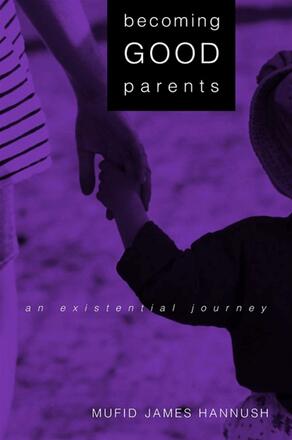
Becoming Good Parents
An Existential Journey
Alternative formats available from:
Argues that our struggle to become good parents can help us to become good persons.
Description
Becoming Good Parents goes beyond a psychological understanding of parenting to include a deeper explication of the philosophical (moral) and existential (spiritual) dimensions of parenting. It counters the contemporary notion that parents can be satisfied with simply being "good enough" in their parenting practices, which encourages a sense of complacency. Through everyday examples, illustrative use of Harper Lee's moral novel To Kill a Mockingbird, and a reinterpretation of the theoretical viewpoints of psychologists Erik Erikson, Heinz Kohut, and Rollo May, along with philosophers Iris Murdoch and Michael Gelven, the author argues that the struggle toward perfection (goodness) is a natural human impulse. Parenting provides an optimal context for the practice of character refinement, which can potentially contribute to the psychological and spiritual growth of both parents and children. Ultimately, the book demonstrates that by becoming good parents, we become good persons.
Mufid James Hannush is Associate Professor of Psychology and Chairperson of the Social Sciences Division at Rosemont College.
Reviews
"Hannush's book provides a counterpoint to the superficial and overly formulaic popular 'how to' literature on parenting as it provides no specific techniques or rigid directives but rather challenges each parent to rise to the distinctive existential demands of becoming a parent, through a guided reflection on its meaning, in his or her own unique concrete situation. " — Journal of Phenomenological Psychology
"The book draws richly on several theoretical and philosophical perspectives, integrates the best of them in a coherent manner, and then illumines the business of parenting in plausible and concrete ways. There is something gentle, modest, and kind about the writing and its tone that seems fully congruent with the author's stated values of compassion, humility, and the like. " — Frank C. Richardson, coauthor of Re-envisioning Psychology: Ethics and Values in Modern Practice
"Hannush's treatment of Erikson and May represents an advance in our understanding of these two prominent thinkers. Far from merely being an exposé of Erikson and May (in the chapters within which Hannush takes up their thought), this book provides the reader with the interpretation of a master of their ideas. It is like listening to Chopin performed by Rubenstein. Hannush performing Erikson and Hannush performing May is something that anyone familiar with their ideas can truly appreciate: it renders them wonderfully clear in ways that one had not quite thought of before. " — Scott Churchill, University of Dallas